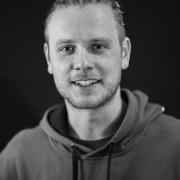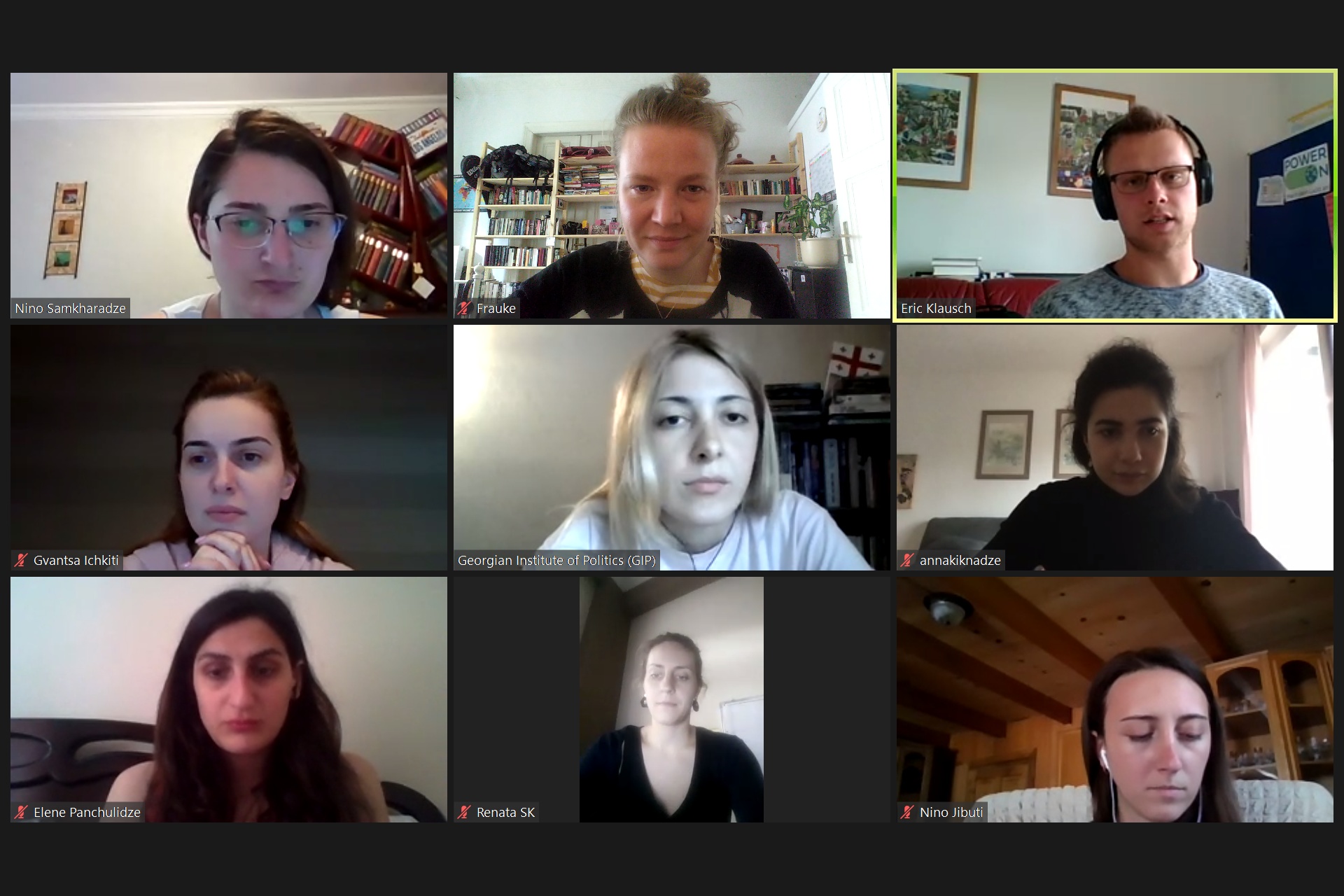How to build a personal connection, even digitally!
A report on the web seminar by Eric Klausch
As part of #GEOYOUTH2020, a series of training web seminars were designed for our Georgian trainers in order to conceptualise and facilitate digital Youth Summits. On June 5, Eric Klausch who founded the association Power On and works as an independent consultant on sustainable development and youth engagement conducted a special training session on methods of “How to get deeper”. Since one of the core challenges in remote working is to build trust between participants, the connection on a more personal level becomes a decisive aspect. With this leitmotiv, Eric presented diverse methods that can be used for digital events in order to enrich its thematic input with more people-to-people connective practices.
To begin with, Eric underlined the importance of the introduction part of an event, especially when it comes to youth. Even though a meeting might be political in nature, a personal entry into the conversation is key. Following a basic introduction, specific questions on personal competencies or skills can facilitate the working process. Sharing ideas about statements, like ‘I fight for […]’, ‘[…] is my hero, because […]’ ‘I am interested in politics, because […]’ helps moderators to get a broader picture of the participants and their potentials.
Another method of getting to know each other digitally is the so-called ‘Book Chapter’, which can be used during breakout sessions with smaller groups of 2-3 people. In this format, participants can see and understand their counterparts from different angles. This exercise creates a space where people can talk about challenges in their private and professional lives. In this manner, they can identify common interests and challenges. As Eric mentioned, facilitators’ participation in this exercise empowers youth to be courageous and give their honest inputs.
Eric’s next focus concerned the rule-setting process. According to the trainer, the participants should be given the possibility to decide themselves how they would like to work. Even discussing seemingly nonessential questions such as microphone settings and number of breaks strengthens the sense of responsibility of individual participants towards the whole group. Any decision that can be given to the group should be taken by the group, priorly providing necessary information. In summary, it can be said that setting participation rules together increases the sense of inclusion and responsibility.
Last but not least, Eric dedicated a substantial part of his seminar on meditation about the future methods, derived from neuroscientist Dr. Joe Dispenza’s research. In the context of the #GEOYOUTH2020 project, which aims at creating a Manifesto of demands by young Georgians to political parties, it is necessary to brainstorm about the question what kind of future youth would like to see for their country. This method of envisioning a desired future gives a tangible picture that can serve as a basis for the following discussion on HOW to achieve this and WHAT are the steps to go between now and that future. More precisely, the facilitators should have the GOAL (namely the Manifesto) in mind to build a process line from there.
During the final discussion, the Georgian trainers got further practical tips on how to use working digitally with youth as an opportunity rather than only as a challenge. In fact, some people are more comfortable speaking on screen rather then in real life, which should be used as a possibility to engage them accordingly. After trying out some of above-mentioned exercises together, Eric concluded that in order to help participants to connect with each other and build trust with facilitators, they need to give them the chance to take ownership and make them feel they are on their side. For this, it is important to allow for some flexibility rather than meticulously following set timetables. Eric’s recommendation: “Go with the flow!”
Read on: Esther Kern on How to structure events for meaningful youth participation!

Eric Klausch, Power On
Project term
01 March- 31 December 2020
Our supporters
The project is funded by the German Federal Foreign Office in the framework of the programme “Expanding Cooperation with Civil Society in the Eastern Partnership Countries and Russia”.



